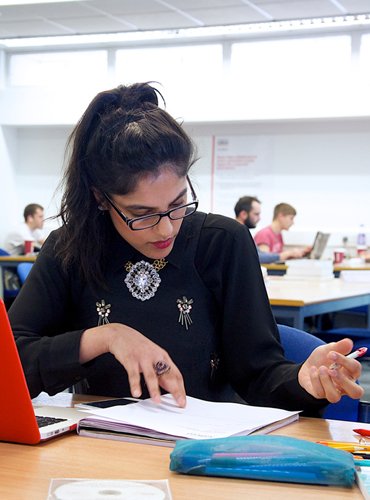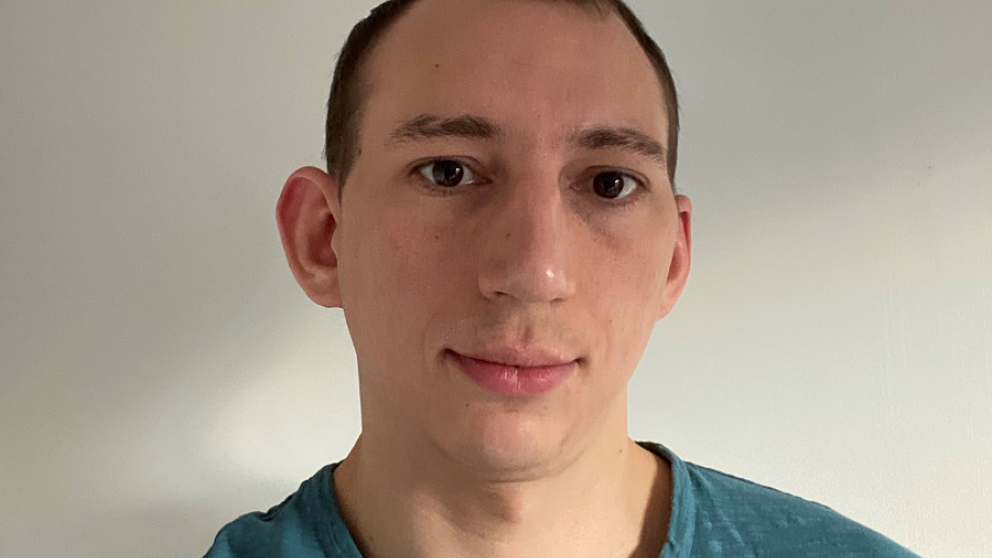Doctoral School. Become world-class.
Doctoral School
Becoming a world-class researcher is challenging yet rewarding. It takes dedication, hard work and a lot of support.
It doesn’t matter whether you’re a current or prospective research degree candidate, our Doctoral School is here to provide that support.
It's an exciting time for research at the University of Salford.
As part of our vibrant and diverse research community, you’ll be guided by our experienced academic supervisors and helped by a team of highly trained administrators, researcher developers and managers - all focused on enabling your success.
Because we understand that your research journey is as unique as you are, we tailor our training and development opportunities to your needs, helping you become the best researcher that you can be. We are always thinking across disciplines, working with industry and delivering research with real world impact.
We provide an imaginative and engaging range of social activities and a broad programme of research specific seminars, wellbeing workshops and conference style development days. This way, you’ll be exposed to innovative research ideas and made aware of opportunities; all while making friends, building your network, developing your resilience and rising to the challenge of becoming a successful researcher.
All of this means that by the time you graduate - whether you continue your career in academia or take up a role in industry - you can take that next step with confidence.
Scholarships
The Doctoral School is delighted to be offering 10 PhD widening participation scholarships for UK candidates, as well as 15 Research Masters (MPhil or MSc by Research) scholarships, to cover UK fees, for University of Salford graduates.
Your training and development

We offer a wide range of training and support designed to meet your specific needs including:
- A personalised training programme – Our Community Model for Postgraduate Achievement, Skills and Future Success (COMPASS) programme is designed to help you develop the skills needed for effective research. It will also provide you with extremely valuable transferrable skills that will enhance your employability for a career in academia or industry.
- Salford Postgraduate Annual Research Conference (SPARC) – SPARC is our forum for developing research and offers a space for you to exchange ideas with other researchers. Held every year, this two-day conference attracts a large number of researchers from across a range of disciplines.
- The Doctoral School Conference Fund - Postgraduate research students are eligible to apply for funding up to £1000 towards the cost of travel and accommodation if they attend international and UK conferences and are presenting a paper, poster or other form of presentation.
Case studies
Find out more about what it's like to be a postgraduate research student at Salford. Read about the experiences of some of our students below.
High quality supervision
Research supervision is a demanding and complex role.
To ensure that you receive the highest standards of supervisory support, we have invested significantly in the development of our supervisor training programme.
Our academic colleagues complete this programme before supervising a research student and refresh their knowledge and skills every three years.
We also have a Supervisor Network that supports and develops best practice and offers opportunities for supervisors to meet and discuss topics.
Wellbeing
The Doctoral School has a Steering Group, run by and for our postgraduate research community, who focus on wellbeing and a healthy work/life balance. The Doctoral School organises social events, days out, craft sessions and networking lunches.
The student journey
A full-time PhD takes three years to complete. However, at Salford there are several other possible options to choose from; for example, a part-time PhD which takes five years.
Below is an example of a typical timeline for a full-time PhD. For details of the timelines for all other study modes, and more information on studying a research degree have a look at our PGR study guide.
Salford ladder to success
Full-time PhD timeline
Start
- Registration
Year 1 (12 documented supervision meetings)
- Handbook
- Research supervision record
- Learning agreement (by month 3)
- Ethical approval
- Interim assessment (month 9-11)
- Annual Progress Report (APR)
- Annual Self Evaluation (SER)
Year 2 (12 documented supervision meetings)
- Registration
- Review learning agreement
- Internal evaluation (month 21-23)
- Annual Progress Report (APR)
- Annual Self Evaluation (SER)
Year 3 (12 documented supervision meetings)
- Registration
- Review learning agreement
- Write up Thesis
- Notice of Intention to Submit
- Annual Progress Report (APR)
- Annual Self Evaluation (SER)
- Submit Thesis
Viva Voce
Fees and funding
You will need to pay annual tuition fees, which vary depending on the programme you’re studying. We offer a range of discounts to our postgraduate research students including a 20% reduction if you’re a Salford graduate and choose to continue your studies with the university.
You can find out more about fees, including the discounts you may be eligible for, on our postgraduate research fees and funding page.
How to apply
Applications for postgraduate research degrees are centered around your research proposal. To help you with this, we've outlined important dates, the information we require, tips on constructing your proposals and the contact information for each school's Admissions team in the link below.
Get in touch
- Science, Engineering and Environment
pgr-supportssee@salford.ac.uk - Health and Society
pgr-supportshas@salford.ac.uk - Arts, Media and Creative Technology
pgr-supportsam@salford.ac.uk - Business School
pgr-supportsbs@salford.ac.uk
You can also contact individual central PGR support team members by using the following details:
- Dr Katherine Yates - Director of the Doctoral School - k.l.yates@salford.ac.uk
- Tracie Harrington-Lord - Doctoral School and Research Manager - t.harrington-lord@salford.ac.uk
- Tracy Ireland - Researcher Development and Support Administrator - t.j.ireland@salford.ac.uk



